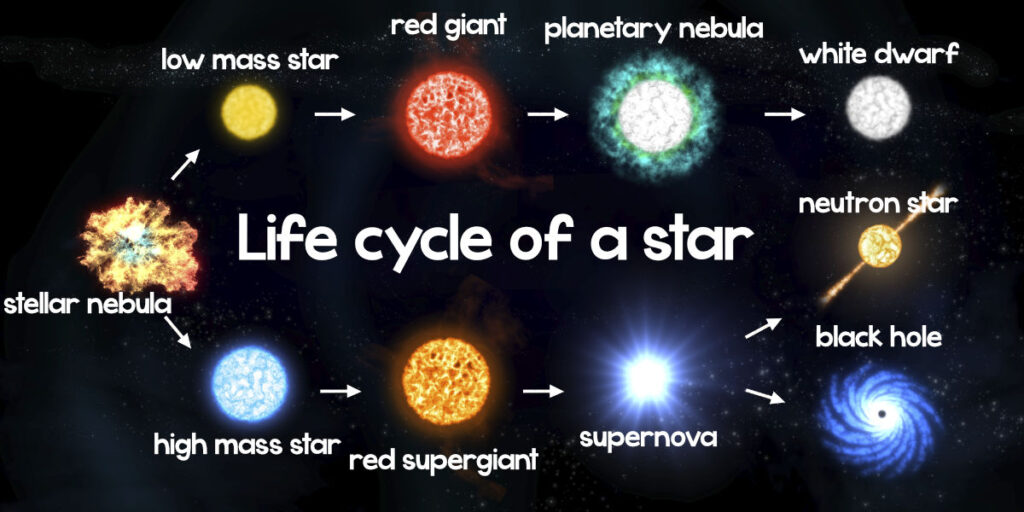Last Reviewed and Updated on June 26, 2022
The Sun is the star at the center of our Solar System and is the single most important thing in our lives. No Sun, no life. Amongst many other things, it affects the temperatures on Earth. But is the Sun getting hotter over time? And how does this affect Earth? These are some super interesting questions to ask!

About the life cycle of stars
The Sun, like any other star ages, and as it does it goes through different stages of its life cycle.
Also read: Fun Facts about the Sun
Stars form from stellar nebulae, and depending on the size, the star will go through various stages in life, before reaching its final stage. Many things change during the different stages of the star’s life cycle, from the size of the star, the temperatures as well as the color in which they shine.
Here are the basics of different stages of the star’s life cycle to give you a general idea:

As you can see stars with low mass will turn into red giants, followed by the planetary nebula and ending their life cycles as white dwarves.
Massive stars will turn into red supergiants followed by a supernova. After the supernova stage, a star will either end its cycle by becoming a black hole or a neutron star.
Is the Sun getting hotter?
Our sun is a low-mass star and it’s on its way to becoming a red giant (over a course of a few billion years).
In this part of its lifecycle, the sun is expanding (growing) and it is becoming more luminous as it grows.
As far as the temperature of the core goes, during this stage, the temperature is increasing as time passes. The surface temperature on the other hand is dropping. The surface temperature of the red giant phase of the Sun will be less than its temperature at the moment.
So while the Sun is getting hotter over time, its surface is not. But we are talking millions of years here for these temperature changes to be noticeable.
Is the sun releasing more heat?
Maybe this would be a better question, especially if you are interested in how the temperature changes of the Sun affect the Earth.

As the Sun grows, and the temperature of its core grows, so does the energy (heat) output. It’s been increasing for quite some time and it will continue to increase, making Earth inhabitable at some point in the future. This will happen even before the Sun reaches its Red Giant stage. But don’t worry, this won’t happen for a couple of billion years.
The change in the energy output of the Sun over time isn’t drastic. It also goes up and down in cycles, with the long-term trend being upward. While we currently may be getting more heat from the Sun than we did decades ago, a period with less activity will follow (and then again with more…).
The long-term effect on the temperature of the Earth is minimal if you average out the periods of low activity and high solar activity. It’s almost unnoticeable during a lifespan of a human. Over thousands and millions of years, it will add up though.
Final verdict: Is the sun getting hotter?
The Sun’s core and heat output are getting hotter and stronger. In the long term, this will have an effect on Earth as well, raising the temperatures, water evaporating, and Earth becoming inhabitable.
The Sun’s surface on the other hand will cool down a little.
